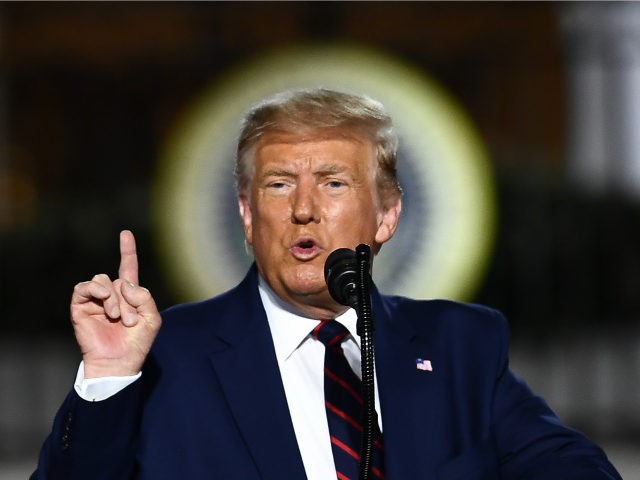Senate Judiciary Committee Republicans released a report Thursday following the conclusion of the committee’s investigation to determine if former President Donald Trump had pressured the Department of Justice (DOJ) to look into allegations of 2020 presidential election fraud in hopes of overturning the election.
Its conclusions go against Democrat claims that Trump tried to “weaponize” the Justice Department and coerce it to overturn the results of the election and said according to available facts and evidence, Trump had listened to his senior DOJ and White House advisers and that he did not weaponize the DOJ for his personal or campaign purposes.
Ranking member Chuck Grassley (R-IA) said in a statement:
The transcripts of this investigation speak for themselves, and they paint a very different picture from the left’s claims that the former president weaponized the Justice Department to alter the election results. The available evidence shows that President Trump did what we’d expect a president to do on an issue of this importance: he listened to his senior advisors and followed their advice and recommendations. Contrast that with President Biden’s actions on Afghanistan. Biden ignored the advice of his generals and went ahead with a reckless and disaster-filled withdrawal.
The report said Trump’s concerns centered on what he perceived as an attack on the electoral system and his firm belief that the American people had been wronged by election fraud that undermined the sanctity of the 2020 election, and his approach was to ensure that the DOJ was aware of election fraud allegations and was doing its job to investigate them.
However, the report said that several times, Trump rejected further action, based on advice from senior advisers.
For example, Trump twice rejected sending Acting Assistant Attorney General of the Civil Division Jeffrey Clark’s draft letter recommending some states with reported voter irregularities to hold a legislative session to choose different electors. He also twice rejected the notion of firing Jeffrey Rosen as acting attorney general.
It also said Trump did not fire any DOJ or FBI employee relating to his belief that more should have been done to investigate election fraud allegations.
Rather, Trump was focused on “legitimate complaints” and “reports of crimes,” the report said.
The report said:
President Trump was inundated with information about election fraud allegations and witnesses testified that they believe he was wrongly informed by some people within his circle. However, when presented with the opportunity to order DOJ to take certain actions that would have been against the advice and recommendations of his senior counsel, such as terminating Rosen and sending Clark’s letter, the President did not take those actions.
When presented with the opportunity to order DOJ to file a lawsuit against states with reported voter irregularities, Trump accepted the advice and recommendations of Rosen to not do so and did not challenge Rosen on his position, the report said.
The committee’s investigation was based on three interviews with former Acting Attorney General Jeffrey Rosen, former Principal Associate Deputy Attorney General Richard Donoghue, and former U.S. Attorney for the Northern District of Georgia Bjay Pak. Both Democrats and Republicans participated in the investigation and were present during interviews.
The report said witnesses testified that Trump did not expect the DOJ to overturn the election and that his questions about what the DOJ was doing to investigate election allegations were not unreasonable. Rosen had testified that any president has a responsibility to ensure the DOJ and agencies under his control are working on behalf of the American people.
The report also said Trump’s distrust of the DOJ and FBI most likely contributed to his concerns that the DOJ was not doing enough to investigate election allegations and that he was correct to be concerned, given evidence that the Public Integrity Section and Election Crimes Branch were passive in their approach to investigating election allegations and that Pak’s people were also “dragging their feet” in investigating matters.
The report said when committee staff asked questions regarding the types of cases and number of matters investigated relating to the 2020 election, the DOJ counsel repeatedly objected to the witnesses answering, “further frustrating congressional oversight and the American people’s right to know what their government did – or did not do – during the 2020 election.”
It concluded:
Based on the available facts and evidence, at every major decision point with respect to the scope of this investigation, the President met and listened to his most senior advisors and when they rendered the advice and recommendations that their job requires of them, President Trump followed their advice and recommendations.
Democrats had originally wanted to interview Clark, author of the draft letter and a figure central to Democrats’ claims of attempted election interference, but did not.
Senate Judiciary Committee Minority Report by Kristina Wong on Scribd
Follow Breitbart News’s Kristina Wong on Twitter or on Facebook.

COMMENTS
Please let us know if you're having issues with commenting.